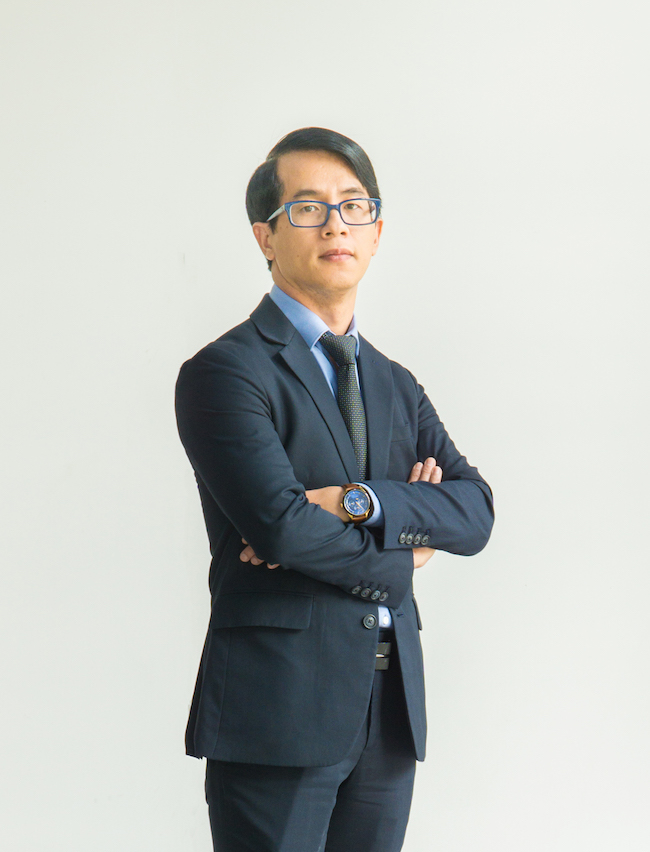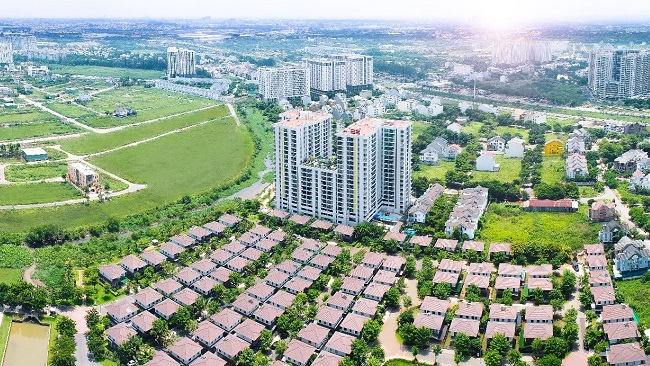Vietnam turns semiconductor vision into action
The global semiconductor industry is being reshaped by geopolitical tensions, shifting supply chains, and the surge of digital technologies.




EZLand hopes to help clear the path and inspire fellow Vietnamese businesses to rethink their responsibility to the environment and society.
The non-financial factors, including environment, social and governance or ESG, are emerging as better indicators of a company’s health than the traditional profitability. However, for the majority of the local Vietnamese businesses, ESG is still an unfamiliar concept and environmental preservation a second thought.
Establihed in 2014 as a sustainable real estate developer combining a focus in sustainability and efficient design, EZLand pioneers to address a market gap that has been neglected: a high quality and healthy living environment at an affordable price for the Vietnamese middle-class.
While it was a steep learning curve at the beginning, the company eventually found a way to fulfill this vision and their first project proved hugely successful as all the apartments were sold out within a week.
EZLand has become an EDGE Champion, in developing all of its projects according to EDGE, a green building standard by IFC - a rare commitment among the local housing developers here in Vietnam.
EZLand continued to position itself differently from other competitors within the segment by adopting ESG through the framework provided by global certifications, benchmarks and European regulations.
It is quite a challenge for a small Vietnamese company since following global ESG standards can be costly, time-consuming and sometimes not feasible given the local market condition. But step by step, EZLand has built up a stronger and better ESG-focused foundation for its operation and portfolio.
Besides being EDGE-certified for resources-efficient projects, EZLand has been GRESB-benchmarked for its ESG performance and recently became a signatory of UNPRI for socially responsible investing. The company’s next goal is to cover 10/17 UN Sustainable Development Goals and build ESG firmly into the company’s culture.
EZLand’s capital markets and financial director Le Yen Thi further elaborates on what the company done to meet GRESB benchmark.

While there are a lot of standards in the world used to assess the sustainability of real estates, why did EZLand decide to apply GRESB (Global Real Estate Sustainability Benchmark) standards but not of the others?
GRESB is currently the world’s leading and most trusted sustainability benchmark. More than 120 financial and institutional investors worldwide are using GRESB data and benchmarks to monitor their investments, engage with managers to make decisions that lead to a more sustainable real asset industry.
For EZLand, despite being a fund manager and a real estate developer with sustainable development goals, we still find it challenging to comply with GRESB standards. However, this opens up an opportunity for us and other investors in Vietnam to change the mindset of developing real estates in accordance with the global trend.
Besides GRESB, EZLand is also the third company in Vietnam to become a signatory of the United Nations-supported Principles for Responsible Investment (UNPRI).
Similar to GRESB in terms of sustainable approach, UNPRI is the world's leading proponent of responsible investment with more than 3,000 signatories. With the Six Principles, UNPRI encourages investors to incorporate non-financial issues into their investments.
The participation has proven our efforts in information transparency and intergration of ESG (Environment – Social - Governance) factors into all business procedures. All of which are driving more and more interests from international investors. From that point, EZLand can get more FDI funding for upcoming residential projects in Vietnam towards a more responsible approach with long-term values.
What are the challenges that real estate businesses in Vietnam may face today to adopt GRESB? Is that an opportunity and motivation for EZLand to name it as a pioneer?
To be recognised as a sustainable business, the company must invest time and efforts to build coherent policies and operational processes that meet these requirements: reducing adverse impacts on the environment, enhancing community awareness and cohesion, transparency of tax and bidding process, labour welfare, anti-corruption, etc. These will help to minimise investment risks for clients and investors.
Vietnam’s real estate industry does not have an official benchmark for above-mentioned standards. Therefore, it takes more time for us to select suitable vendors, suppliers and other partners that ensure their capacity.
Not enough available information in Vietnamese is provided for customers to help them understand the importance of sustainable development for their future, health and long-term benefits. For example, with EDGE Green Building Certification, every apartment project built by EZLand must focus on energy efficiency and public health protection such as low-flow fixtures, low VOC paints, and unfired bricks to reduce the carbon footprints, etc.
Despite all these limitations, we believe that with the upcoming phenomenal growth of information technology, Vietnamese customers and investors – the young intellectuals - will quickly understand the importance of sustainable issues to decide their investment.
What has EZLand implemented to follow the GRESB standards?
GRESB consists of two main parts: development and management, developed from ESG criteria. All departments at EZLand will coordinate with each other to build the operational process and policies according to ESG issues in the GRESB rating scale, at the same time, report annually the company’s ESG activities. These reports are published on the website www.ezland.vn as a basis to help us assess the past sustainable performance. For example, in 2020, EZLand achieved the GRESB score of 71/100 in the first year of participation. Our next goal in 2021 will be 80/100 and continue working to improve it in the following years.
What challenges have EZLand face in complying with GRESB standards and how did EZLand overcome this?
The biggest challenge is about perception. Complying with GRESB standards and UNPRI requires all stakeholders to recognise the importance of addressing sustainable development in all activities. It took quite a lot of time to educate all of them about this concept, then apply and adjust the standards to make sure everything blends well with company’s vision.
To do this, EZLand first applies the OKR (Objectives Key Results) management method to determine specific objectives for each department. We also build a brand strategy based on ESG elements to convey the same messages to all stakeholders. By choosing online channels (social media, online newspapers) and offline ones (company events, CSR activities), we aim at popularising this trend and guiding the market.

Since homebuyers in Vietnam do not pay much attention to the factors of sustainability of projects, is it necessary for EZLand to pursue standards and commitments like GRESB or UNPRI?
This is a long-term goal that we have been working effortlessly to change the mindset of real estate customers in Vietnam. Sustainability has become an inevitable trend that global economies have chosen to adopt. They also transform themselves into more responsible businesses to adapt to new development situations and conditions, especially after the Covid-19 pandemic. Besides that, globalisation is forcing people in Vietnam to change their way of thinking, as well as Vietnamese companies to standardise their business to improve the global competitiveness.
We aim to expand the concept of "investment" to "development" to create more values for the beneficiaries themselves and stakeholders. As "investment" and "responsibility" now correlate, Vietnamese companies should look back to move forward in order to not being left behind.
What benefits does GRESB directly bring to homebuyers?
The construction industry accounts for 39 per cent of CO2 emissions released into the atmosphere. It is believed to be the main cause of climate change and global warming. Real estate companies being GRESB-certified are pretty aware of the impacts that their projects lay on the environment and resources. That means – when customers choose to buy a place for living from a GRESB-certified real estate developer like EZLand, they have contributed to protect the future for their next generations.
Additionally, such businesses are required to be responsible for information transparency, risk management, and ethical compliance. By that means, benefits of the company’s stakeholders will be protected when there are disputes or complaints.
As mentioned above, we believe that “investment” should come with “responsibility”. Businesses joining the GRESB system not only build housing projects but also contribute to improving the local economy and help the community solve problems of education, health, culture, sanitation, etc. Imagine each of us lives in a harmonious and highly connected environment, what do you think about that?
The global semiconductor industry is being reshaped by geopolitical tensions, shifting supply chains, and the surge of digital technologies.
The change in APA approval authority is expected to shorten processing time and enhance business proactiveness in international tax negotiations.
As hybrid cloud systems grow more complex, Vietnamese enterprises are struggling to detect cybersecurity threats moving laterally within their own networks.
The submission of the draft resolution on Vietnam’s international financial center to the National Assembly heralds a new developmental era for the country.
More than just running a 5-star resort, Kristian Petersen is redefining the art of hospitality with a humane and sustainable leadership philosophy.
For Tyna Huynh, co-founder of Drinkizz, organic is not just a food choice but a way of life that fosters a deep connection between people, nature and community.